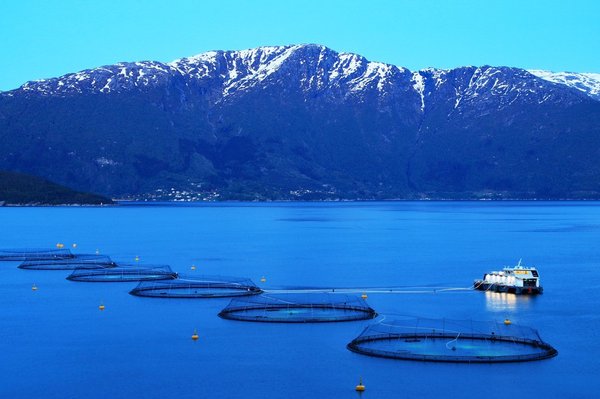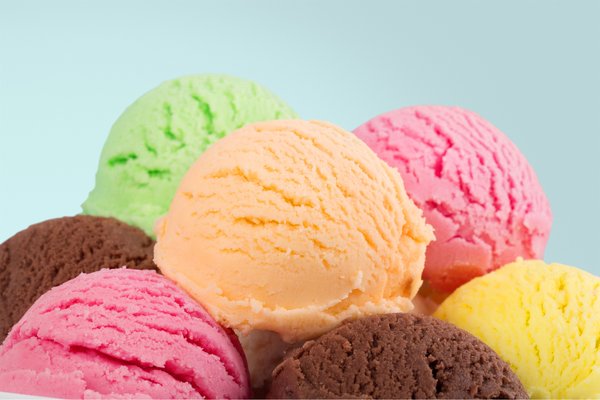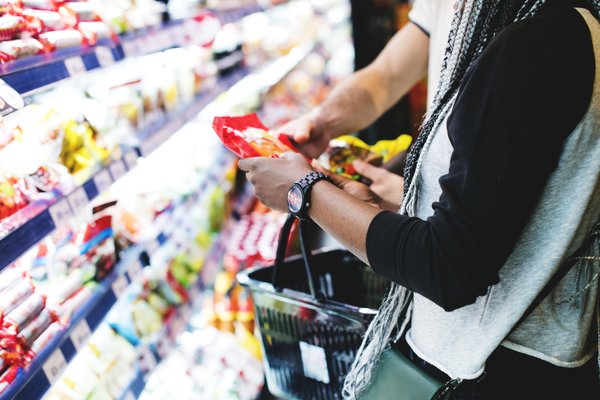According to the U.S. Department of Agriculture, the average American eats or drinks 34 teaspoons of sugars each day, which is more than 500 calories. That adds up to more than 100 pounds of sugar each year. While that's bad for our health -- causing weight gain, obesity, type 2 diabetes, and heart disease -- it's great for the bottom lines of companies producing sugar and sweetened food and beverages.
With that sweet profit potential in mind, here's a look at some of the companies benefiting from our sugar intake.

Top stocks
Sugar industry stocks in 2025
Those seeking to invest in sugar stocks need to take a unique approach. That's because no pure sugar-producing companies trade on major U.S. stock exchanges. Instead, a couple of companies produce sugar along with other agricultural products or as part of a diversified portfolio.
In addition, several notable consumer staple stocks and food companies manufacture sugary and confectionery products. With that background, here are some of the top sugar stocks:
| Company | Ticker Symbol | Market Cap | Description |
|---|---|---|---|
| Tootsie Roll Industries | (NYSE:TR) | $2.3 billion | Manufacturer of confectionery products. |
| The Hershey Company | (NYSE:HSY) | $41.3 billion | Chocolate and candy maker. |
| The Coca-Cola Company | (NYSE:KO) | $310.9 billion | Leading global beverage company. |
| Mondelez International | (NASDAQ:MDLZ) | $101.2 billion | Global snacking and food brands company. |
| Nestle | (OTC:NSRGY) | $267.5 billion | Nutrition, health, and wellness product company. |
| Cosan | (NYSE:CSAN) | $4.1 billion | Brazilian bioethanol, sugar, and energy company. |
| Adecoagro | (NYSE:AGRO) | $1.1 billion | Leading South American agricultural company. |
Here's a closer look at these sugar companies in the stock market:
1 - 3
1. Tootsie Roll Industries
Tootsie Roll Industries has been making and selling confectionery candies since introducing the original Tootsie Roll in 1896. It has since grown into one of the country's largest candy companies.
The candy maker sells familiar brands such as Tootsie Roll, Tootsie Pop, Charms Blow Pop, DOTS, Andes Mints, Sugar Daddy, Charleston Chew, Dubble Bubble, Razzles, Caramel Apple Pop, Junior Mints, Cella's Chocolate-Covered Cherries, and Nik-L-Nip.
Tootsie Roll Industries sold more than $300 million of candy, chocolate, and bubble gum during the first half of 2024. Sales were down 6% compared to the prior year due to more challenging market conditions as customers started pulling back on spending due to inflation-driven price increases. However, the company is working to reduce costs to improve its profitability.
2. The Hershey Company
Hershey has grown from a single factory to a snacking powerhouse over the past 125 years. The company has more than 90 brands worldwide that ring up more than $11 billion in annual sales. Its iconic brands include Hershey's, Reese's, Kit Kat (in the U.S.), Jolly Rancher, Ice Breakers, SkinnyPop, and Pirate's Booty. It's the No. 1 U.S. confectionery brand.
Hershey's has been a good stock to own over the years. It has delivered attractive total returns (9% annualized over the last three years) by steadily expanding its portfolio of candy brands and its dividend payments to investors. As of mid-2024, Hershey had increased its dividend every year since the Great Recession, including by 15% earlier that year.
3. The Coca-Cola Company
Coca-Cola is a leading global beverage company that sells its sweet products in over 200 countries. Coca-Cola owns several global brands, including:
- Sparkling soft drinks like Coca-Cola, Sprite, and Fanta.
- Water, sports, coffee, and tea brands such as Dasani, Smartwater, Vitamin Water, Powerade, and Gold Peak.
- Juice, value-added dairy, and plant-based beverage brands like Minute Maid, Simply, and Fairlife.
While Coca-Cola is working to reduce sugar in its drinks by bringing innovative products to the market, it sells a lot of sugary beverages.
The company's beverage portfolio generates lots of cash, allowing it to pay a nice dividend. In 2024, Coca-Cola delivered its 62nd consecutive annual dividend increase. That kept it in the elite group of Dividend Kings, companies with 50 or more years of increasing their dividends.
4 - 7
4. Mondelez International
Mondelez is one of the largest snack companies in the world. Its products include biscuits (cookies, crackers, and salted snacks), chocolate, and candy. Notable sugary brands include Sour Patch Kids, Cadbury, Chips Ahoy, Oreo, and many others.
The company has delivered excellent returns for shareholders. Mondelez has increased its dividend at a 10.3% annual rate over the last five years and has repurchased more than $10 billion of its shares since 2018 (reducing its outstanding shares by 13% during that period). That has helped drive strong total returns of more than 15% annually over the last five years, significantly outperforming its peer-group average. The snack maker believes it can continue returning more cash to shareholders in the future even as it keeps expanding its global portfolio of popular snacking brands.
5. Nestle
Nestle is a global food, beverage, and nutritional health solutions giant. The Switzerland-based company has more than 2,000 brands in its portfolio, ranging from iconic global ones to local favorites. The company's sugary confectionery brands include Kit Kat (outside the U.S.), Toll House, and Smarties, while other sweet brands include Dreyer's and Haagen-Dazs ice cream, Coffee-Mate, and Nesquik.
While Nestle has some strong offerings, it's not as pure a play on sugar intake as others. However, the company offers a diversified portfolio that adapts to consumer tastes, which is important as more people try to limit their sugar intake for health reasons. That adaptability has Nestle on track to deliver sustained organic sales growth in the mid-single digits in the coming years.
6. Cosan
Cosan is a Brazilian holding company. It has a joint venture with Shell (SHEL 0.02%) called Raizen S.A., an integrated energy company that produces sugar, ethanol, and bioenergy. It also operates one of Brazil's largest lubricants companies and Latin America's largest logistics operator, plus it invests in infrastructure, distribution, commercialization, and trading in the natural gas and energy sectors.
Cosan offers a different spin on sugar. It's a leading manufacturer of sugarcane ethanol in Brazil and the largest individual sugar exporter globally. Cosan sells its sugar to food manufacturers that put it in chocolate, candies, chewing gum, cakes, biscuits, ice cream, and cereals. The pharmaceutical industry also uses its sugar for syrups, oral intake medicines, and nutritional products, while beverage makers put it in soft drinks, juices, and alcoholic beverages.
7. Adecoagro
Adecoagro is a leading agricultural company in South America. Its farming business produces milk, rice, and grains, and, like Cosan, it has a sugar, ethanol, and energy business.
The company plants and processes sugarcane. It uses some of this sugarcane to produce ethanol, a clean and renewable fuel, which it sells to major Brazilian distributors. It also sells organic, white, and brown sugar to both domestic and international markets.
Related investing topics
Should you invest?
Do sugar stocks deliver sweet returns?
Investors have lots of ways to invest in our nearly insatiable appetite for sugar. They can buy shares of sugar producers such as Cosan or Adecoagro or invest in companies that use sugar to make confectionery products like chocolate and candy.
Many of these companies have a long track record of delivering strong returns to shareholders since sugar consumption remains relatively stable even though we should eat less of it. While that's leading to a rise in lower-calorie substitutes as companies like Coca-Cola seek ways to reduce the sugar in their products, sugar remains the dominant way we sweeten our lives.










